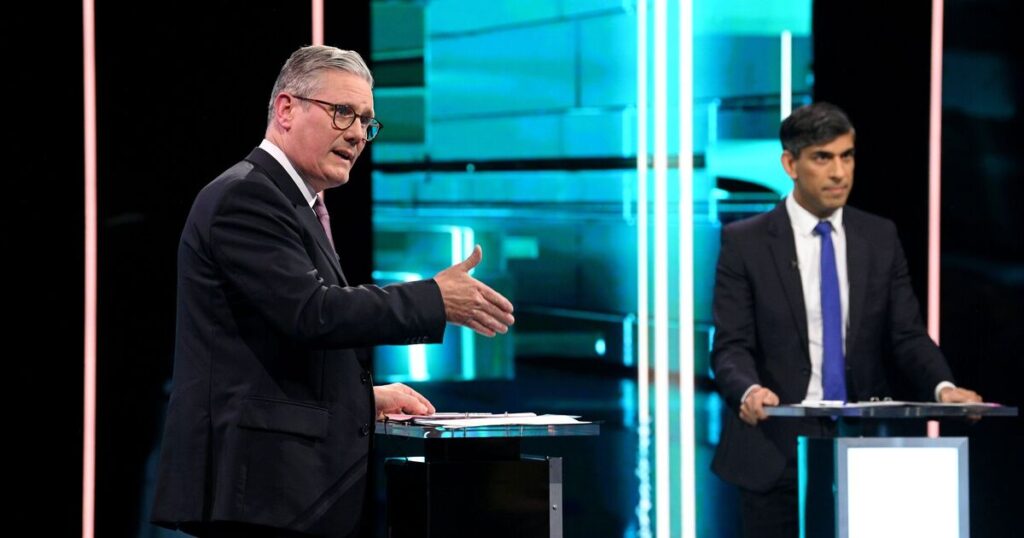
Households face an £800 a year tax hike regardless of who wins the general election, according to a new analysis.
The figure has been based on a calculation of decisions made in the last Parliament before the election was called by Rishi Sunak.
The analysis comes from the Resolution Foundation which said that while the two main parties are arguing over future potential tax there are “far bigger tax rises… hiding in plain sight”.
It said these amount to £23 billion and would amount to an average of £800 a year per household. And it suggested that further increases in taxes would be likely to push up the average cost even further.
The think-tank said the biggest single tax rise coming in the next parliament is related to the continuation of the six-year freeze to income tax and employee National Insurance thresholds.
This alone will hit workers with a bill of £9 billion a year by 2028-29, while employers face paying an extra £2 billion due to a freeze on thresholds that cover the National Insurance contributions they are expected to pay.
A further squeeze is in the pipeline with temporary cuts to business rates, fuel duty and stamp duty land tax due to end in spring 2025 of next year.
And a new government could choose to continue some or all of these, however, this would likely involve tax rises or spending cuts elsewhere.
Both the Conservatives and Labour have ruled out increases in the headline rates of income tax, National Insurance and VAT, however, other sectors will be in the firing line.
Principal economist at the Foundation, Adam Corlett, said politicians “should level with the public, and admit that taxes are already set to rise whoever wins the election, even if it’s less entertaining than the usual election fodder of secret bombshells and debatable dossiers”.
The tax has been at the centre of the general election campaign, with Prime Minister Rishi Sunak claiming in the first televised debate this week that Labour would put up household taxes by £2,000 if it won power.
Sunak said during the debate on ITV that the figure was based on independent analysis by Treasury civil servants, but Labour leader Sir Keir Starmer dismissed it as “nonsense” and “absolute garbage”.
Later it emerged that James Bowler, the finance ministry’s permanent secretary, had poured cold water on Sunak’s claim, telling Labour in a letter that the figure included “costs beyond those provided by the civil service and published online by HM Treasury”.
Neither main party has yet published its election manifesto, but Starmer and senior Labour figures on Friday signed off the party’s document, including a commitment not to raise four key taxes: income tax, national insurance, value-added tax or corporation tax.
Labour has set out a limited range of tax rises, including imposing VAT on private school fees.
The Conservative party has proposed a £2bn tax cut for pensioners and child benefit reforms that would have tax implications for higher earners.
Both parties have promised to address tax avoidance, but Corlett said they “remain silent” on already planned post-election tax rises.
